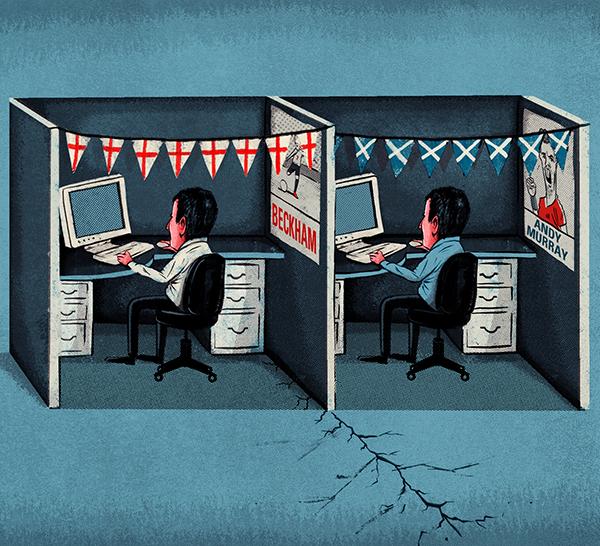The prospect of Scottish independence has moved in the past week from an interesting theoretical question to a huge potential headache.
Of course, potential is not actual – and as we go to press, the polls were still marginally favouring the No camp. But the pro-Union camp has been driven, blindfolded, miles out of its comfort zone, and seems unable to find a way back.
Over the past few months, speaking off-record to industry professionals that work with Scottish or cross-border schemes, the independence question has hovered – but it is impossible to prepare for something that, if it happens, will evolve entirely unpredictably.
But the question gets closer by the day. If it were to happen, the split would doubtless create an extra regulatory burden for cross-border defined benefit schemes, however the chips may fall.

Illustration by Ben Jennings
This is a subject we have coveredbefore, and we have resisted the urge to flood the pages of this title with the known unknowns ahead of the vote, in our desire to report on those challenges that exist now
The Scottish government’s line is: “We are confident that it will be possible to agree sensible and practical transitional arrangements which will provide sufficient flexibility for employers, whilst ensuring that scheme members and beneficiaries are protected.”
But there are “sensible and practical transitional arrangements” that will need to be found across an entire range of institutions and governance, and you wonder how high the DB scheme sector could be on the freshly independent state’s priorities.
For the defined contribution member of the contract-based scheme, the question of ongoing management could be affected by where your provider decamps to in the new normal, with Standard Life the most prominent example.
Scaremongering? Addressing concerns will always be a part of the argument for maintaining the status quo, but Standard Life should not be blamed for making and sharing preparations it thinks will protect its customers given currency and economic uncertainty.
But scheme managers should not let their anxieties get the better of them. It will be in neither side’s interests to make a decision that will harm funds and their members. You would hope.
Ian Smith is editor of Pensions Expert. You can follow him on Twitter @iankmsmith and the team @pensions_expert.









